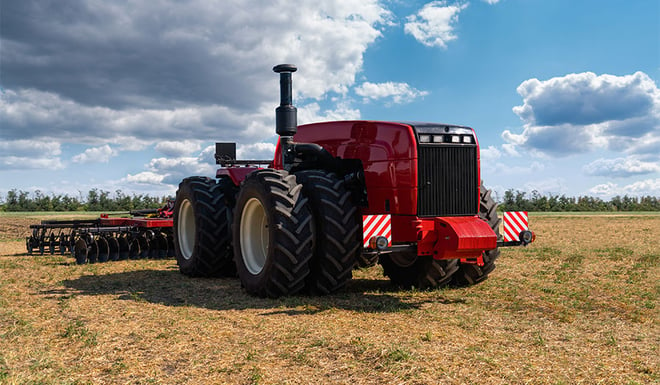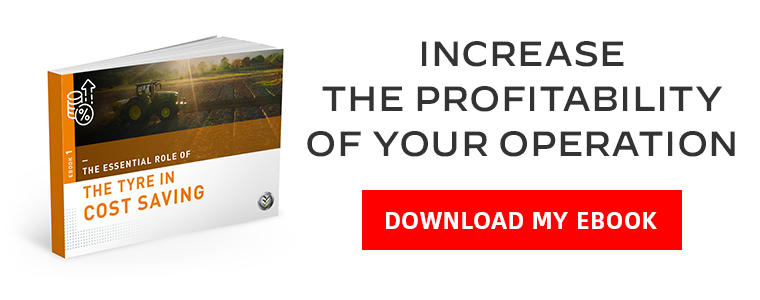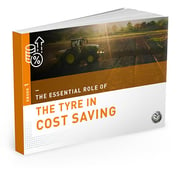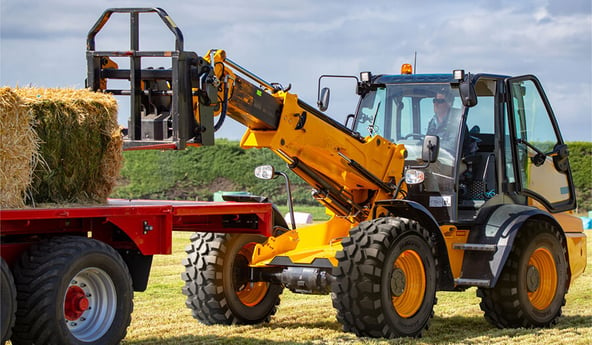Autonomous tractors represent advanced technologies, offering the promise of more precise and more productive farming.
They are engineered to optimise agricultural operations, reducing costs and boosting efficiency.
However, the full potential of these machines cannot be reached without paying special attention to their tyres, which are essential in adapting correctly to the different types of agricultural terrain, which do not change.
Choosing tyres that are suitable for autonomous tractors is therefore vital if you wish to make full use of their potential
As the sector continues to evolve, the choice of appropriate tyres will become an increasingly critical aspect of automated farming, highlighting the importance of continuous innovation in this domain to support the development and expansion of precision agriculture.
1. Autonomous vehicles that are underequipped in terms of agricultural tyres
Small autonomous machines tend to be equipped with substandard tyres which are not particularly efficient (diagonal structure or standard technology).
Generally they are experimental, the main focus having been placed on the captors, the cameras, the security and the autonomy of the machine, with the tyres neglected, corresponding to low-cost models in order to avoid increasing the overall price of the machine.
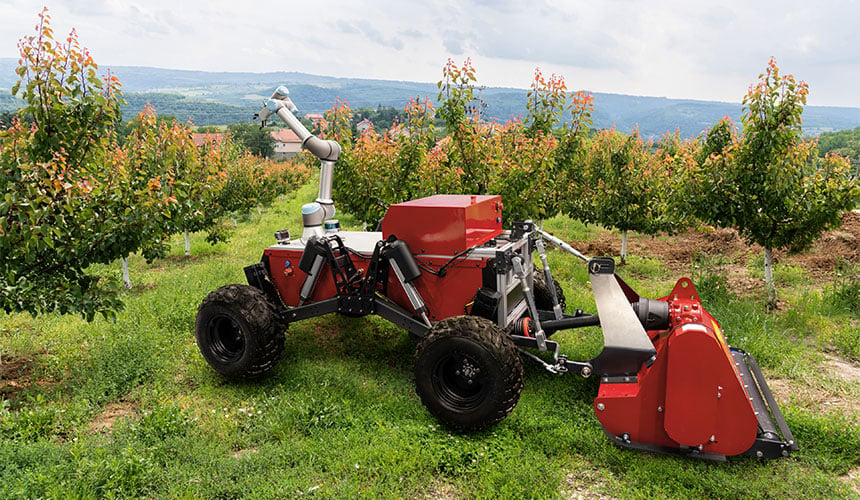
What is the impact of the agricultural tyre for self-driving weeding tractors
Autonomous machines used for weeding deliver a clear advantage by reducing the use of chemical products that are harmful to the environment. Thanks to innovative captors, they target and eliminate weeds mechanically.
However, this type of intervention often involves an increase in the number of trips by these robots over the land. This extra activity with unsuitable tyres can lead to excess soil compaction, compromising the soil structure and fertility on a long-term basis.
For autonomous machines used for seeding
The autonomous machines used for seeding face special challenges when they operate in wet conditions.
Their weight, combined with the lack of grip offered by standard tyres, leaves them exposed to a potentially significant increase in the slip ratio and the risk of getting stuck in the mud. The machine then has to be removed and work automatically stopped.
These frequent work interruptions, in addition to excessive soil compaction, counteract the machine’s productivity gains.
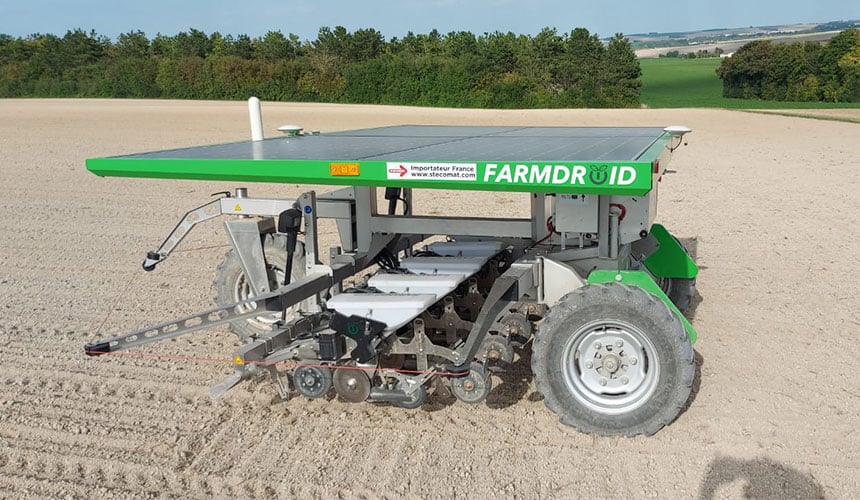
For autonomous viticultural tractors
Autonomous viticultural tractors contribute to the vine spraying and weeding operations. This makes it possible to reduce the use of herbicides significantly and provides a perfect response to the growing need for agricultural practices that are more respectful of the environment.
However, the intensive use of these autonomous machines can have drawbacks, in particular as far as excess soil compaction is concerned.
The more trips back and forth across the land there are, the greater the pressure to the ground, with a progressive destruction of surface root systems.
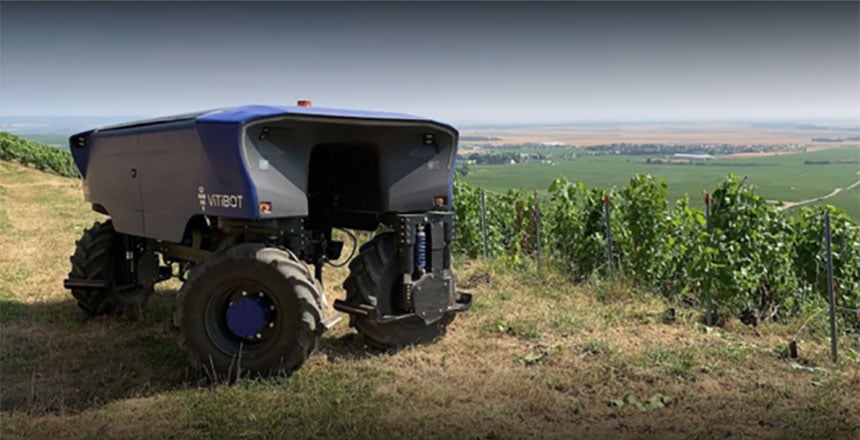
Which wheels to choose for multitask agricultural robots
Multitask agricultural robots deliver good profitability by combining several functions in one machine. This versatility allows farmers to optimise their operations and reduce the costs linked to the use of several different machines.
But bear in mind that this versatility will require much more power and torque, possibly with an increase in the weight of the vehicle, which could amplify soil compaction problems if the tyres used are not low-pressure tyres with the right inflation settings.
In the long term, with the reduction in yields linked to compaction, this will reduce the economic benefits that can be obtained through the use of these multitask robots.
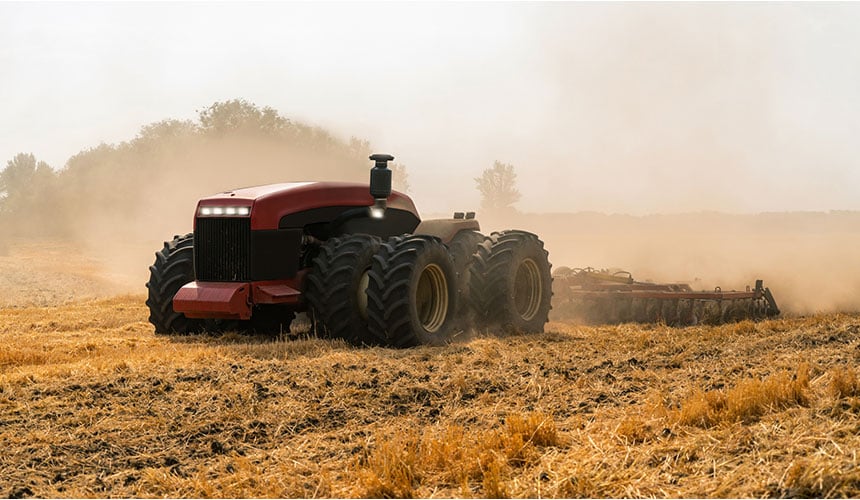
2. How to protect the soil with autonomous tractors
The tyres on autonomous tractors play an important role in soil preservation. Their impact is similar to normal tractors.
The fact of working with an autonomous machine doesn’t change the nature of the soil in any way, the weather conditions or the weight of the machine, so the choice of tyre must not be neglected if you wish to preserve soil fertility and ensure optimal yields.
Of course, autonomous tractors have state-of-the-art technology, but their efficiency, just like for a traditional tractor, is very closely linked to tyre performance.
Indeed, even with advanced autonomous features, an agricultural vehicle cannot protect the soil properly unless it is equipped with low-pressure tyres and has settings that take into account the weight of the machine and the type of soil.
The choice of VF tyres for soil preservation purposes
VF (Very High Flexion) technology tyres provide an efficient solution for soil preservation. Their capacity to bear heavy loads at a low inflation pressure makes it possible to limit soil compaction
By spreading the weight of the machine evenly over a larger surface area, these new generation tyres reduce compaction, even during harvesting if you have autonomous harvesters, thus preserving the structure and fertility of the soil for future years.
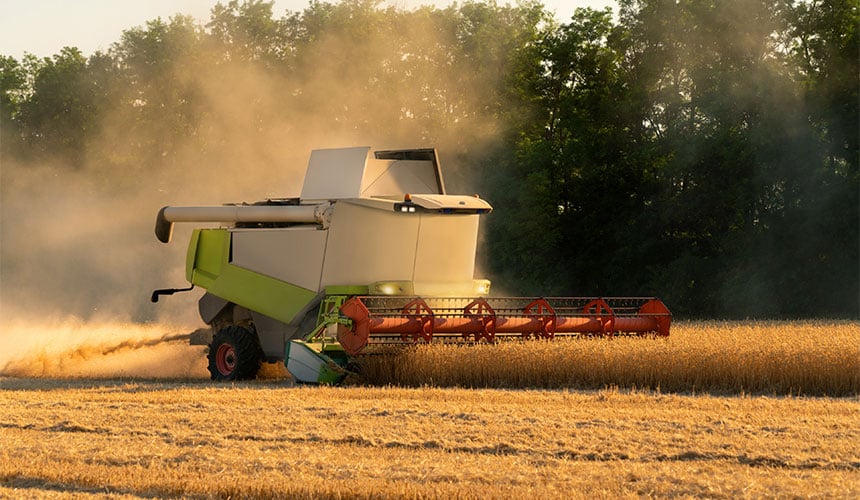
3. Equipping autonomous tractors with VF VT-TRACTOR tyres
Tyres must be designed to minimise the impact to the ground, to prevent compaction or soil packing and to guarantee optimal traction in all conditions, including on wet ground or with any machine whatsoever.
Low-pressure tyres, such as the VF VT-TRACTOR tyre, are particularly well suited to meeting these challenges.
By providing a larger soil footprint, they reduce pressure to the ground while improving the mobility and efficiency of tractors, whether autonomous or not.
Below are the advantages of equipping your autonomous vehicles with VF VT-TRACTOR tyres:
More traction, less slip
Bridgestone’s VF VT-Tractor tyres are the fruit of an innovative design which allows them to operate at a very low inflation pressure with a larger contact patch with the ground, thus improving traction even on difficult terrain or wet ground.
By reducing the slip ratio, autonomous tractors can move forward with better adherence, limiting the risk of skidding which can lead to the robot stopping automatically.
A reduction in tyre wear
With better traction and reduced slip, tyres are placed under less strain and face less abrasion, which extends their operating life.
This reduction in wear leads to significant financial savings in the long term for farmers, by making tyre replacements less frequent.
Less soil aeration work
VF tyres contribute to the protection of the soil structure, which leads to a significant reduction in soil aeration work.
Rather than devote hours to compacted soil rehabilitation work, you can concentrate on other more useful tasks on your farm. Not only does this allow you to improve your operational efficiency, but it also boosts your overall productivity.
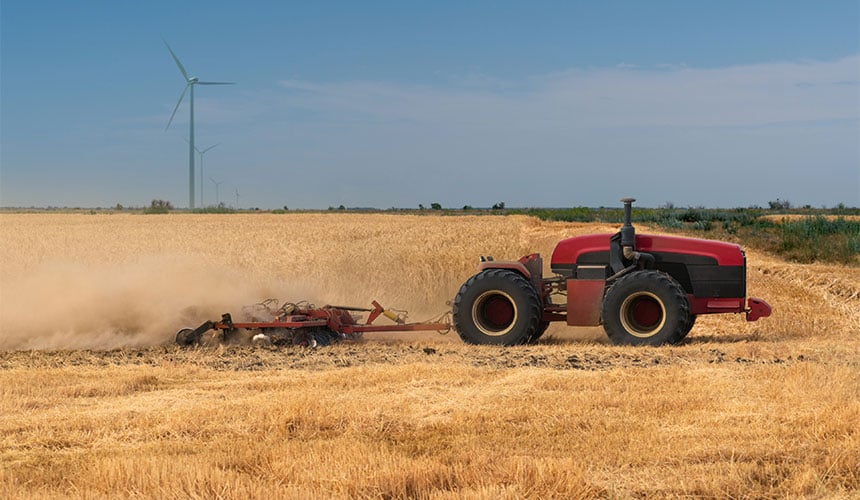
A reduction in fuel consumption
VF VT-Tractor tyres allow autonomous tractors to reduce their fuel consumption. They effectively have a larger, longer soil footprint which allows the lugs to provide better motricity.
This means that less energy is required to move the tractor forward, leading to a reduction in fuel consumption.
Fuel savings are not only beneficial financially for farmers, they also contribute to reducing the environmental impact of their agricultural activities on a long-term basis.
Better soil preservation for your autonomous machines
The supple, reinforced sidewalls of VF VT-Tractor tyres make it possible to work at a low pressure of 0.6 to 0.8 bar depending on the load. This feature reduces the compression zones in the different soil horizons, thus protecting the growth of the crop root systems.
The less compaction there is, the better the infiltration of water, air and inputs into the soil will be, optimising yields without needing extra watering during the dry season.
Better adaptability to difficult conditions
VF VT-Tractor tyres are designed to offer optimal efficiency in the fields in all working conditions. Their robust yet supple design allows them to maintain excellent grip, even on rough terrain or wet ground, offering stability and reliable traction in different environments.
This adaptability is essential for robots, because it makes it possible to maximise the use of autonomous tractors in different situations.
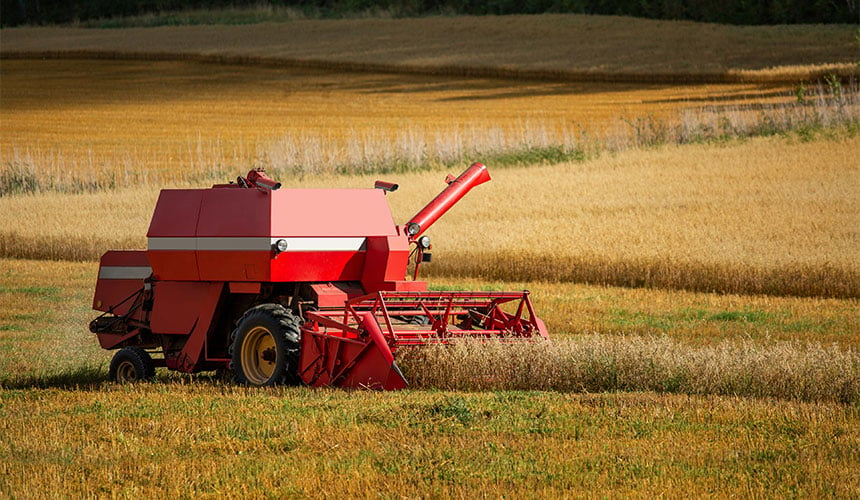
the role of the tyres remains the same
CONCLUSION
Autonomous tractors or robots are a future solution for avoiding repetitive, time consuming tasks, which are not very rewarding for farmers, or which require a lot of labour.
The advantages of VF VT-TRACTOR tyres on this type of machine are multiple: improvement of the operational efficiency of the autonomous tractor, soil preservation, reduction of fuel consumption, optimisation of yields.
By investing in an agricultural tyre model for autonomous tractors, you can improve the operational efficiency of the farm while contributing to more sustainable and environmentally friendly farming.
The Bridgestone-agriculture.eu blog is written and administered by tractor tyre experts who are available to provide you with the advice you need on the subject of your agricultural tyres. They allow you to maximise your productivity with information on all subjects linked to tyres: Technical data for agricultural tyres – Agricultural tyre performance – Air pressure advice, Solutions to avoid soil compaction – Sprayer tyre pressure – Why and how to ballast your tractor tyres – etc.
To take it one step further and increase the profitability of your farm, les Experts du pneu provide a free, highly detailed eBook which explains the essential role of the agricultural tyre in your productivity.
Most people who read this article have also read some of the following articles which are listed by order of popularity:
- Buying guide: 10 important tips for choosing the right farming tyres
- Technologies that make the difference for quality agricultural tyres
- Changing agricultural tyre series: how does it work?
- Which agricultural tyre technology to choose? Standard, IF or VF?
- The advantages of a good agricultural tyre in wine and fruit growing activities
- What are the differences between the 3 generations of VF tyres?
- How to get a better warranty for your agricultural tyres?
- A long-lasting agricultural tyre also leads to better productivity
- Here is the new generation of high-tech agricultural tyres
- Testimonial: What are the qualities of a premium agricultural tyre
This information is intended only to make you aware of the technical and functional aspects of agricultural tires and their use. It does not allow you to make a judgment or a definitive conclusion on a given problem. Only your agricultural tire expert is able to make a technical assessment and take a final decision, case by case.
Leave a
commentary
Your email address will not be published.
Required fields are indicated with *


